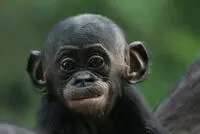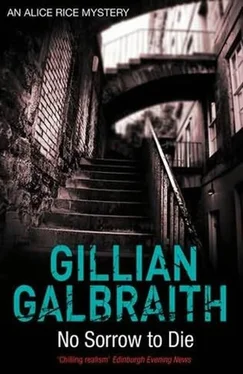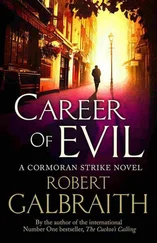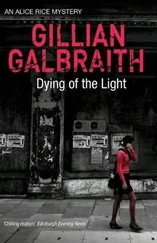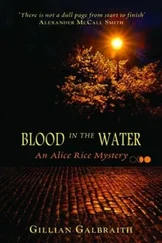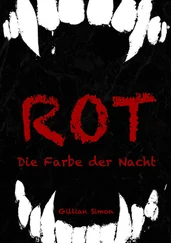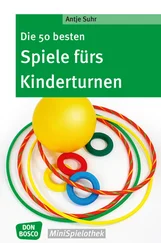
Walking along Henderson Row, Alice, too, was finding it difficult to get the events of the day out of her head. She could still see Pippa Mitchelson’s figure in the interview room. The woman had seemed so awkward and vulnerable in there, so utterly incongruous in such a setting. In a classroom of small children she might, possibly, wield some authority, but outside it she had none. She seemed almost bemused by the world, like a nun released from her convent too late, no longer able to survive in changed times. She spoke like the schoolteacher she was, in an unhurried, measured way, a manner suited to the times tables or dictation, but not to the confession of a killing that she had carried out.
And listening to the lone spinster, most of Alice’s sympathies had been with her, because she had so obviously lost her way. Love had led her astray, had been her only motive. And the sight of her, stricken, when, for a second, she re-lived the moment when she cut the man’s throat and was sprayed with his still-warm blood, would remain with her forever, Alice thought, however much she might wish to forget it. Handing her over to the turnkeys, watching them laugh uproariously at their own in-jokes while manhandling her, listening to her old-fashioned expressions of gratitude as her cell door was opened for her, had been heartbreaking. Now she was just another body in the system, waiting to be processed like the rest of them, and there was nothing to be done to change that, nothing she could do. Pippa Mitchelson’s life was over, whatever sentence was pronounced on her.
Once she saw Ian, she told herself, her mind would stop racing and she would be able to distance herself from the Brodies, get everything back into its proper place, into perspective. Finally they would be able to talk freely, in private, and she would tell him about the woman’s tragedy, the man’s tragedy, in fact, the whole bloody family’s tragedy. The very act of telling their story, of putting it into words, would help to make it all easier to understand, to accept. Things would fall into place, as they usually did. And, embracing one another at last, they could smooth any ruffled feathers, reassure each other and find the way back to their old, comfortable world.
Of course, and naturally enough, he would give her more news of the boy. This child who had, somehow, entered their lives through a back door, and had no mother. Only a father.
When she had considered children at all, and idly at that, she had only ever imagined her child, their child. She had wanted their child, never someone else’s. Not some other woman’s child. Loving their child would be easy, it was unimaginable not to love such a wondrous new being. But what did she know about children? Nothing. Despite her best efforts, the squalling baby in the surgery had found no comfort in her arms. So how would she manage? And, as importantly, would she, could she, love this unknown boy? Because if he became part of their family, in fact, made them into a family, she would have to. And what would happen to them, all of them, if, for some reason, that never happened? Perhaps there was no way back to that old, comfortable world?
Pushing her head through the sheets that separated the two studios from each other to enter Ian’s part, she heard a high-pitched laugh and saw, sitting on the only chair in the unheated space, a dark-haired little boy. One of his hands was bright blue, as if it had been dipped to the wrist in a pot of paint, and the other one was bright red. Seeing her, he instantly held them both up to show them off, and then clasped them together, marvelling loudly to himself as parts of them turned purple. He then clamped one onto each side of his face and, as if life was for laughter, giggled again at her, showing his magically perfect little milk teeth and creasing his fat red and blue cheeks.
Then, as if it was the most natural thing in the world, he wriggled off the seat of his chair, bent forwards to splay his hands on the stone floor, admired their imprint and toddled across to her. When she stooped down beside him, wanting to be nearer his level, he looked with his innocent eyes into hers and then, saying nothing, held out a red hand for her to clasp in her own. Taking it, feeling the slimy, warm paint between their palms, she realised with pleasure that all her attention, all her being, had, for the last few minutes at least, been focused on the small child, drawn completely into his world, his life as he lived it moment by moment.
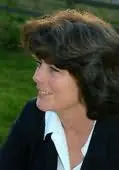
Gillian Galbraithgrew up near Haddington in Scotland. She worked for many years as an advocate, specialising in medical negligence and agricultural law cases. Before qualifying in law she worked for a time as an agony aunt in magazines for teenagers. She was also the legal correspondent for the Scottish Farmer and has written law reports for The Times . Her first book, Blood in the Water, An Alice Rice Mystery , was published in 2007, and this was followed in 2008 by Where the Shadow Falls . A third Alice Rice mystery, Dying of the Light , was published in 2009. She lives deep in the country near Kinross with her husband and child, cats, dogs, hens and bees.
***
